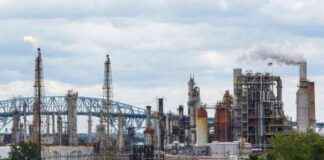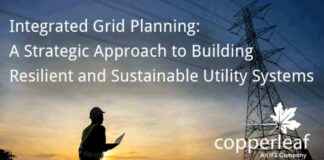Last year marked the warmest on record since 1850, with a global temperature rise just shy of 1.5 degrees Celsius, nearing the target set by the Paris climate agreement. As climate-related disasters escalate worldwide, financial experts are sounding the alarm about the potential impact on the global economy in the coming decades. A study conducted by the University of Exeter and the Institute and Faculty of Actuaries in the U.K. projects a stark reality – continuing with business as usual without significant emissions reductions could lead to a drastic 50% reduction in global GDP by 2070.
Dr. Tim Lenton, a professor at the University of Exeter, sheds light on these sobering findings as a co-author of the 2025 Planetary Solvency Report. In an interview with Jenni Doering, Dr. Lenton delves into the economic implications of climate change, emphasizing the critical need for action to avert a potential economic breakdown.
Implications of Climate Change on Global GDP
Dr. Lenton paints a vivid picture of what the future could hold if current climate policies continue on their trajectory. With a potential warming of 3 degrees Celsius by the end of the century, or even a more sensitive scenario of 4 degrees Celsius, the habitability of vast regions of the planet could be fundamentally altered. This, in turn, could lead to major social disruption and economic collapse, highlighting the severity of the situation.
The report’s projection of a 50% loss in global GDP between 2070 and 2090 serves as a stark warning of the repercussions of inaction. Dr. Lenton stresses the importance of understanding that this is not just a reduction in wealth, but a significant loss of societal structures and productive capacity.
Challenges and Opportunities in Climate Risk Assessment
While the focus on GDP in the report may be seen as a narrow view of progress, Dr. Lenton explains the necessity of using this economic metric to communicate the potential impacts effectively. He acknowledges the flaws in measuring human well-being solely through GDP but underscores the need to convey the risks to capital and productivity in a language that resonates with policymakers and the public.
As discussions around climate risk continue to evolve, Dr. Lenton addresses the disconnect between traditional economic models and the actual systemic impacts of climate change. By highlighting the interdependence of various sectors of the economy, he challenges outdated assumptions and calls for a more holistic approach to risk assessment.
The Path Forward: Agency and Resilience
Amidst the looming threats of climate change, Dr. Lenton emphasizes the importance of collective action and individual agency in shaping a sustainable future. While the challenges ahead are daunting, he encourages communities to build trust and resilience as key components of adapting to a changing world.
Looking ahead to the future, Dr. Lenton envisions a world where transformative changes have been made to combat climate change effectively. By transitioning to clean energy sources, halting the destruction of nature, and prioritizing sustainability, he hopes to create a world where his children and future generations can thrive.
As we navigate the complexities of climate change and its economic implications, Dr. Lenton’s insights serve as a reminder of the urgency to act decisively. While the road ahead may be fraught with challenges, there is still hope for a sustainable future if we collectively strive for positive change.














